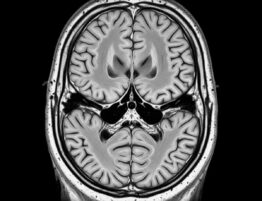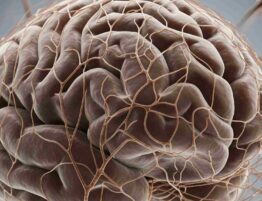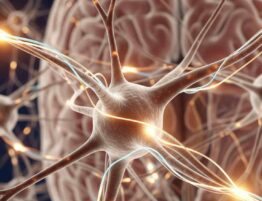Chemotherapy is a vital treatment for different cancers. It involves the use of powerful drugs to destroy harmful cells. While highly effective, it can also impact healthy cells. It leads to many side effects like chemo brain. Neurological side effects are increasingly recognized as a significant concern for patients.
Drugs can affect the nervous system in several ways. They may:
- Directly damage nerve cells.
- Interfere with nerve signal transmission.
- Disrupt the blood-brain barrier, which protects the brain from harmful substances.
These disruptions can result in many neural side effects. They range from mild to severe. Among commonly reported side effects is “chemo brain.” It refers to mental difficulties. Some people face them during or after chemotherapy. Signs may include difficulty concentrating, memory problems, slowed thinking, and reduced mental clarity. These signs can be distressing. However, it’s important to note that they are often temporary and manageable.
Understanding the potential neural side effects is crucial. This is important for both patients and doctors. By recognizing these signs and seeking the right support, patients can better cope with the challenges they may face and improve their overall quality of life during and after treatment.
What Is Chemo Brain? A Comprehensive Explanation
This is a term used to describe mental difficulties that some people face during or after treatment. These difficulties can include memory problems, concentration issues, and slowed thinking. The exact mechanisms behind CB are still being studied. However, it’s believed to be a result of the impact of drugs on the brain and nervous system.
Drugs are usually designed to target and destroy cancer cells. However, they can also affect healthy cells. It includes those in the brain. Some of the drugs can directly damage brain cells. Additionally, others can interfere with the way brain cells communicate with each other. These disruptions can lead to a variety of mental issues.
Common Chemo Brain Symptoms:
- Memory problems. Difficulty remembering recent events, names, or info.
- Concentration issues. Trouble focusing on tasks or maintaining attention.
- Slow thinking. Feeling like your thoughts are moving more slowly than usual.
- Reduced mental clarity. Experiencing a sense of confusion or disorientation.
- Difficulty learning new info. Struggling to acquire and retain new knowledge.
- Mood changes. Experiencing emotional ups and downs, such as irritability or anxiety.
Recognizing Chemo Brain Symptoms
It’s important to be aware of the signs of this problem so that you can seek help if needed. If you are facing any of the following signs, it’s a good idea to talk to your doctor:
- Memory issues. Are you forgetting things more frequently than usual? Are you having trouble remembering appointments, names, or recent events?
- Concentration issues. Do you find it difficult to focus on tasks or stay on track? Are you easily distracted?
- Mental changes. Have you noticed a decline in your mental sharpness or clarity? Do you feel like your thinking is slower than it used to be?
These signs can significantly impact daily life. It makes it difficult to work, socialize, or perform everyday tasks. If you are facing them, it’s important to find ways to manage your signs and seek support.
How Long Does Chemo Brain Last?
Does chemo brain ever go away? The duration of this issue can vary greatly from person to person. Some people may experience symptoms for a few weeks or months. At the same time, others may continue to have difficulties for a longer period. In some cases, the issue may even persist after the treatment has ended.
It’s important to note that not everyone who undergoes treatment will experience CB. The severity and duration of signs can also depend on some factors. They are the type of drugs used, the overall health of the person, and other unique factors.
There is no cure for CB. However, there are strategies that can help manage signs and boost quality of life. These may include mental training exercises, lifestyle changes, and meds. If you are concerned about CB, it’s important to talk to your doc for more info and advice.
Drugs and Treatments That Cause Chemo Brain
Certain drugs and treatments have been linked to the development of CB. Understanding these factors can help patients and docs expect potential side effects. This allows them to implement techniques to mitigate the impact. So, what drugs cause chemo brain?
Drugs:
- Alkylating agents. Cyclophosphamide, ifosfamide, and chlorambucil can damage both cancer cells and healthy ones. It includes those in the brain.
- Platinum-based agents. Cisplatin and carboplatin can disrupt the function of nerve cells. It leads to mental issues.
- Anthracyclines. Drugs like doxorubicin and daunorubicin can cause inflammation and damage to brain cells.
- Taxanes. Drugs like paclitaxel and docetaxel can interfere with the communication between nerve cells.
Other Treatments:
- Radiation therapy. Radiation therapy to the head or neck can damage brain tissue and contribute to mental impairment.
- Stem cell transplantation. The process of destroying bone marrow and replacing it with stem cells can have temporary effects on brain function.
The exact mechanisms by which these drugs cause chemo brain are complex and not fully understood. However, several potential factors are involved:
- Direct damage to brain cells. Some drugs can directly damage brain cells. This can lead to cell death and impaired function.
- Inflammation. Chemotherapy and radiation therapy can cause inflammation in the brain. It can disrupt its normal function.
- Disruption of neurotransmitters. Certain drugs can interfere with the production or function of neurotransmitters. They’re chemicals that help brain cells communicate with each other.
- Blood-brain barrier disruption. Drugs can damage the blood-brain barrier. It protects the brain from harmful substances. This can allow toxins and other harmful substances to enter the brain and contribute to mental problems.
Understanding the specific drugs and treatments that are associated with CB can help patients and docs make informed decisions about treatment options and develop strategies to manage potential side effects.
Effective Strategies for Managing Chemo Brain Fog
Chemo brain fog (CBF) can significantly impact daily life. However, there are techniques that can help manage signs and improve well-being. Here are some practical tips:
Lifestyle Changes:
- Physical activity. Regular exercise can help boost mood, improve mental function, and reduce fatigue.
- Healthy diet. A balanced diet rich in fruits, vegetables, and whole grains can provide essential nutrients for brain health.
- Adequate sleep. Aim for 7-9 hours of quality sleep each night to support mental function.
- Stress control. Practice meditation, deep breathing, or yoga to reduce stress and anxiety.
Mental Exercises:
- Brain training apps and games. Engage in activities that challenge your memory, attention, and problem-solving skills.
- Mindfulness and meditation. These practices can improve focus, reduce stress, and enhance mental function.
- Learning new skills. Taking up a new hobby or learning a new language can stimulate your mind. And it helps prevent mental decline.
Potential Therapies for Chemo Brain Fog:
- Cognitive-behavioral therapy. It can help you develop coping strategies for managing CBF and boosting your overall quality of life.
- Meds. In some cases, meds may be prescribed to help control signs.
Support from Doctors:
- Open communication. Talk to your doc about your signs and concerns. They can provide guidance and support.
- Regular follow-ups. Schedule regular appointments with your doc to track your progress and adjust your treatment plan as needed.
- Support groups. Connecting with others who have experienced CBF can provide emotional support and advice.
Remember, managing CBF is a personal journey. It may take time to find the techniques that work best for you. Be patient with yourself and seek support from docs and loved ones.
When to Seek Professional Help for Chemo Brain
Many people experience mild to moderate signs of CB. However, there are instances when seeking professional help is vital. If you notice any of the following signs, it’s important to consult with your doctor:
- Severe mental decline. If your memory problems, concentration difficulties, or slowed thinking are significantly impacting your daily life, it’s time to seek med advice.
- Mood changes. Unusually severe mood swings, anxiety, or depression can be a sign of underlying neural issues.
- Difficulty performing daily tasks. You may struggle with activities like getting dressed, driving, or managing household chores. Then, it may indicate a more serious problem.
- Physical signs. If you have headaches, dizziness, or seizures, it’s important to seek med attention immediately.
When discussing chemo brain with your doc, be as specific as possible about your signs and their impact on your life. This will help them assess the severity of your condition and recommend appropriate treatment options.
It’s important to remember that there is no one-size-fits-all approach to controlling CB. Your doc will work with you to develop a personalized treatment plan that addresses your specific needs and signs. This may involve a combination of meds, therapies, and lifestyle changes.
By seeking professional help and working closely with your care team, you can effectively manage CB and improve your overall quality of life. No matter what condition you have, proper medical care is what matters. We offer a personalized approach.
Why choose us?
- Personalized care. Our doctors take the time to understand your unique needs.
- Convenient locations. Find a clinic near you for easy access to care.
- State-of-the-art facilities. We invest in the latest technologies to provide the best possible care.
- Affordable options. We offer competitive pricing and flexible payment plans.
Don’t wait any longer. Schedule an appointment today. And experience the difference our clinics can make.













Please, leave your review
Write a comment: